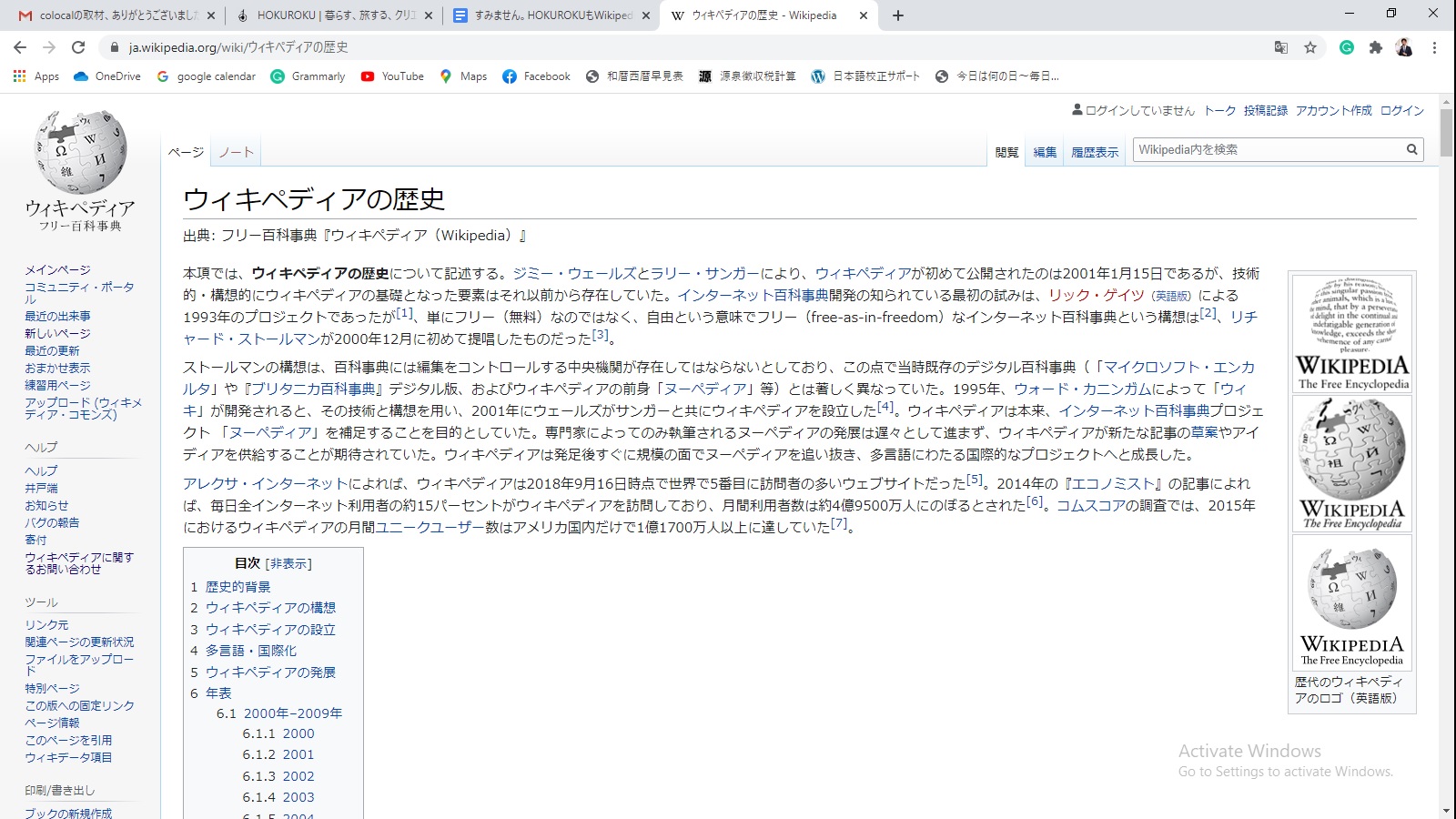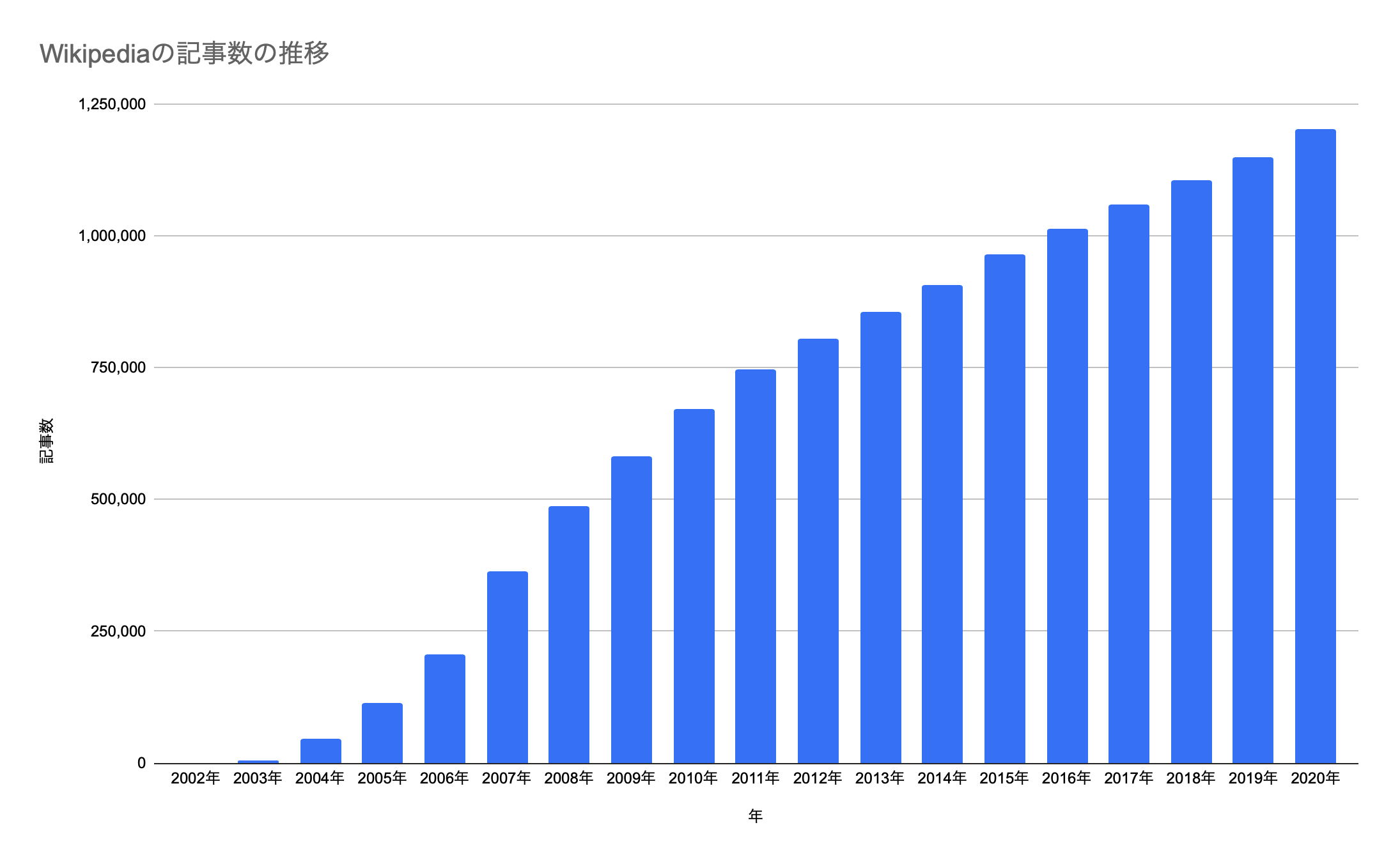The Story of Adding Myself to Wikipedia: Apologies for the Self-Promotion

vol. 02
What is Wikipedia?
Before adding an entry to Wikipedia, we must clarify what Wikipedia is.
As a writer, translator, and editor, I immediately think of Wikipedia as a source that cannot be used as a reference when writing articles.
Unlike traditional encyclopedias, Wikipedia does not employ a responsible editorial or authorship system. In other words, authoritative scholars and experts in a given field do not write articles under their real names.
Some entries do not indicate sources, and in some cases, the sources lack credibility.
For these reasons, Wikipedia is not recognized in our editorial industry as a reliable source for writing articles or columns in reputable media.
That being said, does this mean traditional print encyclopedias are error-free? Not.
An interesting point was made in a 2005 article published in Nature titled “Internet Encyclopaedias Go Head to Head.”
The study examined 42 science-related entries in Encyclopaedia Britannica and Wikipedia, revealing that Britannica contained 123 errors, while Wikipedia had 162. In other words, the accuracy gap between them was not significant.
This result sparked strong objections from Britannica. However, for someone from a generation that values both the merits of traditional encyclopedias and Wikipedia equally, my takeaway is simply: “Wikipedia is pretty amazing too.”
One of the World’s Leading Internet Sites
Insert a captured image of Wikipedia’s homepage.
The history of Wikipedia is detailed in The Wikipedia Revolution by Andrew Lih, which I have on hand. According to this book, Wikipedia launched in January 2001.
Let’s also refer to Wikipedia itself for its history. Searching for “History of Wikipedia” in the Japanese-language Wikipedia brings up various pieces of information.
Wikipedia, which began in January of that year, introduced its German-language version in March, followed by further multilingual expansion.
The number of articles increased steadily, surpassing 100,000 in the English version and 10,000 in the German version by 2003.
By 2004, the total number of articles across 100 language editions exceeded one million.
In 2006, the English Wikipedia alone surpassed one million articles.
By its 10th anniversary in 2011, the English Wikipedia had grown to over 3.8 million articles.
Following the English, German, and French editions, the Dutch Wikipedia also surpassed the one-million-article mark.
Based on statistics from Wikipedia: Japanese version, compiled by the editorial team as of May 2020.
Wikipedia’s main English site launched in January 2001, and by May of the same year, articles related to Japan had already begun appearing.
However, with few volunteer editors and Wikipedia initially supporting only Romanized script, writing articles in English was necessary, limiting the growth of the Japanese version.
The real starting point for the Japanese Wikipedia was in 2002, when it became possible to write in Japanese.
As of October 2019, the Japanese Wikipedia ranked 13th in the world in terms of article count. By April 13, 2020, the number of entries had reached 1.2 million.
One of the Giants
Needless to say, Wikipedia’s number of articles far surpasses that of printed encyclopedias, which are limited by physical space.
Critics point out Wikipedia’s low reliability, endless edit wars between different users, and biased coverage. However, in Japan, Wikipedia has essentially taken over the role that printed encyclopedias once played.
Regarding Japanese print encyclopedias, Heibonsha (Tokyo) published a major revised edition of the World Encyclopedia in 2007.
For children’s encyclopedias, Poplar Publishing (Tokyo) released Poplardia in 2011. However, there has been no significant movement in Japan’s printed encyclopedia industry since then.
Meanwhile, Wikipedia continues to be updated in real-time by volunteer editors, with new articles being added every day.
In other words, while it may not be the undisputed champion, Wikipedia has undoubtedly grown large enough to be considered one of the dominant forces in the world of encyclopedias.
And now, I would like to add an entry about Hokuroku to this online encyclopedia.
(Deputy Editor Otsubo’s comment: Next, in Part 3, we will finally discuss how to add an entry to Wikipedia!)












Like op-ed
For this article, we are waiting for your positive, constructive and responsible opinions and comments. Only members can post.
Only members can post. please login.